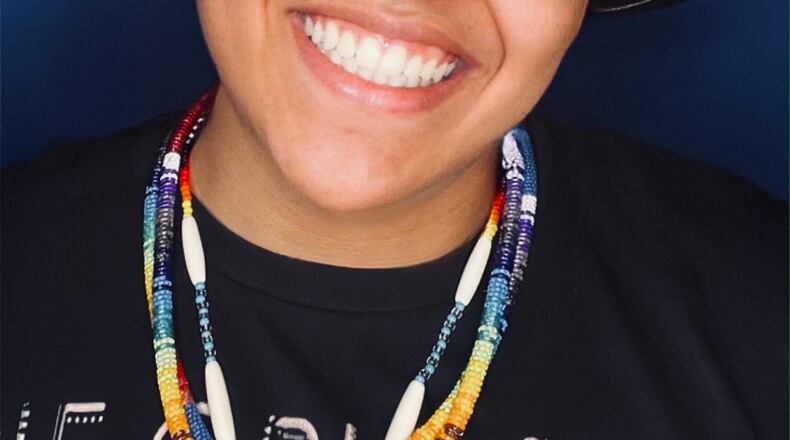Native American people and culture is something Switzer said he feels isn’t talked about enough.
“I just really like to educate people and I like to teach people something that they don’t know about,” he said.
@indigenouszane Thank you guys for everything ❤️ #nativeamerican #nativetiktok #nativetiktoks #indigenous #nativeamericancheck #fyp
♬ -
As of April 15, he has more than 141,000 followers and millions of likes on his account, @indigenouszane. He began posting about the Native American tribes in 2020 and started getting more followers last summer.
Switzer said he has learned a lot during his research. For example, he didn’t know how many places in Ohio are named after Native American words. Words like Miami and Ohio are Native American words.
@indigenouszane Part 2! Please let me know if I’m missing anything 😊 #native #nativetiktok #history #nativeamerican #indigenous #fyp #greenscreen #montana #southcarolina #sc #viral
♬ -
“I just feel like especially in Ohio, they don’t appreciate or recognize our indigenous history at all,” Switzer said.
He said it frustrated him that in school, Native people who lived in Ohio previously weren’t often discussed. His school mostly talked about the mounds built by the Hopewell and Adena tribes, which still exist today and are scattered across southern Ohio. According to the Ohio Historical Society, the Serpent Mound, which is in Adams County and is one of the largest of these mounds, was likely used for ceremonies and was built around 1,000 A.D.
The lack of discussion shows up in the research he does, too. It typically takes Switzer two hours to research a video. More than once, he said he hasn’t gotten enough information on a topic, so he hasn’t been able to make a video.
One of Switzer’s most popular videos lists the names of states that were originally words in Native languages: Tennessee, Texas, Iowa, Mississippi and Nebraska.
He said he was surprised with some of the comments on that video, which included comments from people who said they didn’t know that information and wished it had been taught in school.
“I didn’t expect to kind of blow up like this,” he said. “I just wanted to educate people.”
He says he hopes people get a better understanding of Native people and culture, whether the tribe is still around today or not.
“Just keep on educating yourself to make sure we don’t forget these tribes and to make sure they don’t just fade away into time,” he said. “That’s really important to me.”
About the Author

